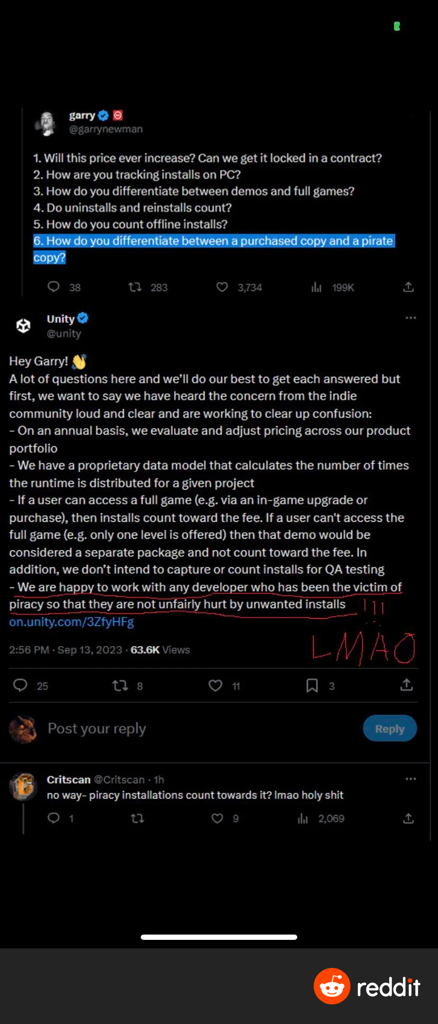this post was submitted on 15 Sep 2023
392 points (99.0% liked)
Piracy: ꜱᴀɪʟ ᴛʜᴇ ʜɪɢʜ ꜱᴇᴀꜱ
54577 readers
201 users here now
⚓ Dedicated to the discussion of digital piracy, including ethical problems and legal advancements.
Rules • Full Version
1. Posts must be related to the discussion of digital piracy
2. Don't request invites, trade, sell, or self-promote
3. Don't request or link to specific pirated titles, including DMs
4. Don't submit low-quality posts, be entitled, or harass others
Loot, Pillage, & Plunder
📜 c/Piracy Wiki (Community Edition):
💰 Please help cover server costs.
 |
 |
|---|---|
| Ko-fi | Liberapay |
founded 1 year ago
MODERATORS
you are viewing a single comment's thread
view the rest of the comments
view the rest of the comments


I love their response to (paraphrasing) "Are you going to do another Darth Vader and alter the deal on us in the future?" - "Oh yes, potentially every year."
Is it just me, or does "we have a proprietary data model that calculates..." sound an awful lot like "we have no actual method of tracking that"?
To me it sounds a lot like "We don't really want to answer that question, so here's a bit of technobabble to ease your mind."
I mean, writing your own linked list in C and then summing its values could be considered as having "a proprietary data model that calculates", but it has basically nothing to do with the question on how they track such things, just hints that they're not using an existing - and proven - tracking method.
To clarify; they took the question "How are you tracking installs" to mean "With your tracking data, how are you counting installs", and then basically answered "We add the numbers together"
This is a complete non-answer, and it seems to suggest that their actual tracking method is likely unreliable.
What do you bet they have an actually figured that part out yet and were just hoping no one would ask, and then that they'd magically be able to come up with something.